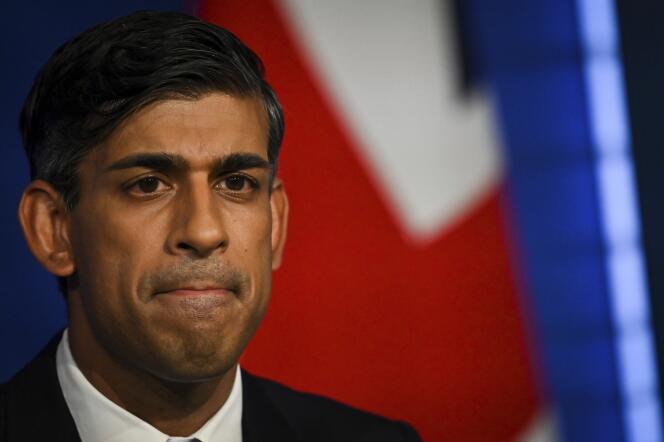
Since taking office at 10 Downing Street almost a year ago, Prime Minister Rishi Sunak has shown little enthusiasm for environmental issues. In fact, unlike his predecessor Boris Johnson, he seems to be completely uninterested. On Wednesday, September 20, he moved from indifference to political instrumentalization by announcing that he was postponing the introduction of key measures to ensure that the UK achieves carbon neutrality by 2050. Amongst these measures is the switch to all-electric cars by 2030. This objective has been enshrined in national law since 2019, making Britain the first country to make this ambition a legal obligation.
The Conservative leader's aim is clear: with the Tories trailing Labour by 15-20 points in the polls, and the general election roughly a year away, he wants to create a divide with the party of the British left by portraying it as a profligate movement with little concern for the financial burden the energy transition places on the public. The maneuver was deemed cynical by Labour, which was not alone in its reaction. With the exception of the right wing of the Conservative Party, ex-Brexiters turned climate skeptics, experts, industrialists, activists and even many moderate Conservatives were disappointed by Sunak's decision.
Advancing an upcoming announcement after his plans were leaked to the BBC, Sunak announced from Downing Street the postponement of the ban on sales of new cars with petrol or diesel engines from 2030 to 2035. Additionally, he extended the deadline for ending the installation of gas and oil heating systems in homes, also beyond 2030. Low-income households will even be able to keep their equipment indefinitely. These measures are nevertheless deemed necessary by the Climate Change Committee (CCC), the independent authority charged with monitoring the UK government's compliance with its carbon commitments, if it is to meet its 2050 targets.
A transition deemed too costly
Sunak insisted that the government was still "completely committed" to achieving carbon neutrality by 2050 but said that his new approach "eases the burdens on families." The 43-year-old prime minister and former Goldman Sachs banker who studied at Oxford and then Stanford, and who is reputed to be a Thatcherite, is a follower of the small government approach advocated by former Iron Lady Margaret Thatcher in the 1980s. That morning, defending the prime minister's decision, Suella Braverman, his very radical home secretary, even asserted that Sunak won't "save the planet by bankrupting the British people." Since, according to her reasoning, the country plays little role in global greenhouse gas emissions, why impose a transition regarded as costly on the British?
You have 55.02% of this article left to read. The rest is for subscribers only.